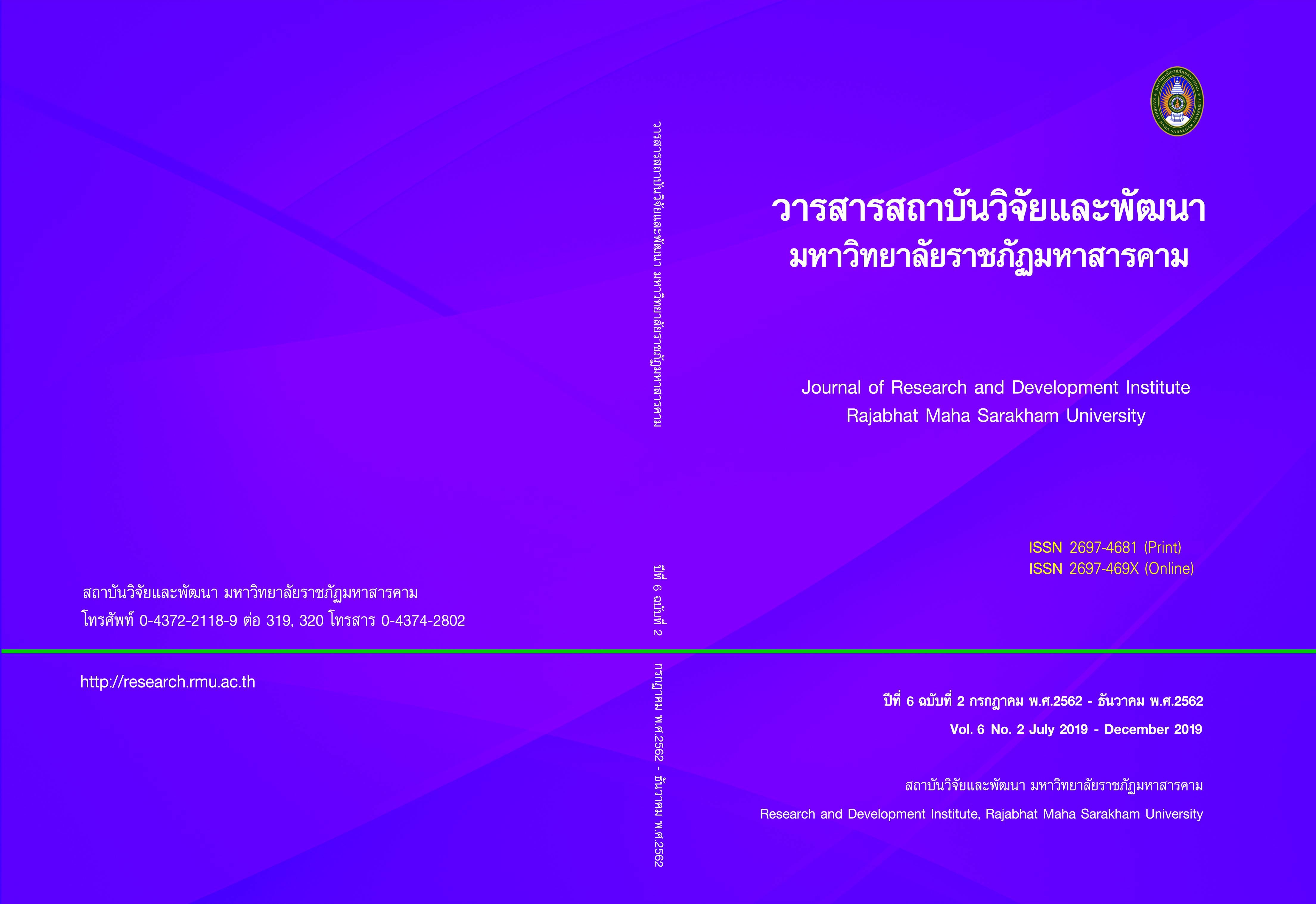Legal Problems about Physical Fitness Entrepreneurship
Keywords:
Fitness, License, ContractAbstract
This dissertation aimed to study physical fitness entrepreneurship’s fundamental information, theories, and principles of law, and to study relevant laws concerning to the entrepreneurship both in Thailand and overseas. Additionally, its purposes were to analyze legal problems and to suggest proper relevant laws. This study was carried out by applying document analysis and semi structured interview. According to the results, it was found that, at the present time, law enforcement related to physical fitness entrepreneurship is still legally problematic. That is, the legal problems were that there were vagueness of principles, conditions, and ways of requesting permission to establish physical fitness entrepreneurship, lack of central agencies for determining standards of the entrepreneurship, the problem of issuing specific licenses for this kind of business, including the problem in terms of consumer protection law. Therefore, it could be suggested that the Act of Physical Fitness Entrepreneurship should be specifically legislated, which provides details of appointing a committee who determines standards and takes charge of standard control as well as issues a license for physical fitness entrepreneurs, including takes action on the control of contract management between entrepreneurs and customers. This could lead to fair agreement and legal problem solving in Thailand sustainably and everlastingly.
References
Borwornsak Uwanno. (1995). Public Law, Book 3: Sources and Procedures. Bangkok: The rule of law. [In Thai].
Bunjerd Singkaneti. (2012). Fundamental Principles of Rights, Liberty and Human Dignity According to New Constitution. 4th edition. Bangkok : Yinyoo Chon. [In Thai].
Chaiwat Wongwattanasan. (1997). Legal Practice for Government Administration. Bangkok: Intellectual media. [In Thai].
Economic and Business Research Center, Commercial Bank of Thailand (2017) The trend of exercise and the opportunity of the Thai fitness business that should not be overlooked. [Online] https://www.scbeic.com [10 June 2561]. [In Thai].
Faculty of Law, Pridi Banomyong. (2011). Basic Knowledge About Law : LW 102. 3rd edition. Bangkok: Dhurakij Pundit University. [In Thai].
Kriengkrai Charoenthanawat. (2013). Basic Principles of Public Law. 2nd edition, Bangkok : Yinyoo Chon. [In Thai].
Nattapon Jaijing and Kritz Wongvisadethorn. (2017) Local Ordinances. [Online] http://wiki.kpi.ac.th/index.php?title=ข้อบัญญัติท้องถิ่น_[10 December 2561]. [In Thai].
Pornchai Luernshavee. (2009). Constitutional Law and Political Institutions. Bangkok: Dhurakij Pundit University Press. [In Thai].
Somkit Lertpaithoon. (2000). “Equality Principle”. Thammasat Law Journal, 30 (2) : p. 164-165. [In Thai].
Somyot Chuathai. (2013). Introduction to Public Law. 9th edition, Bangkok : Yinyoo Chon. [In Thai].
Worachet Pakeerut. (2006). Fundamental Knowledge about Administrative Law : Basic Principles of Administrative Law and Administrative Actions. 3rd edition, Bangkok : Yinyoo Chon. [In Thai].
Worapot Widsarutpitch. (2000). Rights and liberties under the Constitution of the Kingdom of Thailand 1997. 2nd edition. Bangkok : Yinyoo Chon. [In Thai].
Downloads
Published
How to Cite
Issue
Section
License
Articles that are published are copyrighted by the authors of the articles







